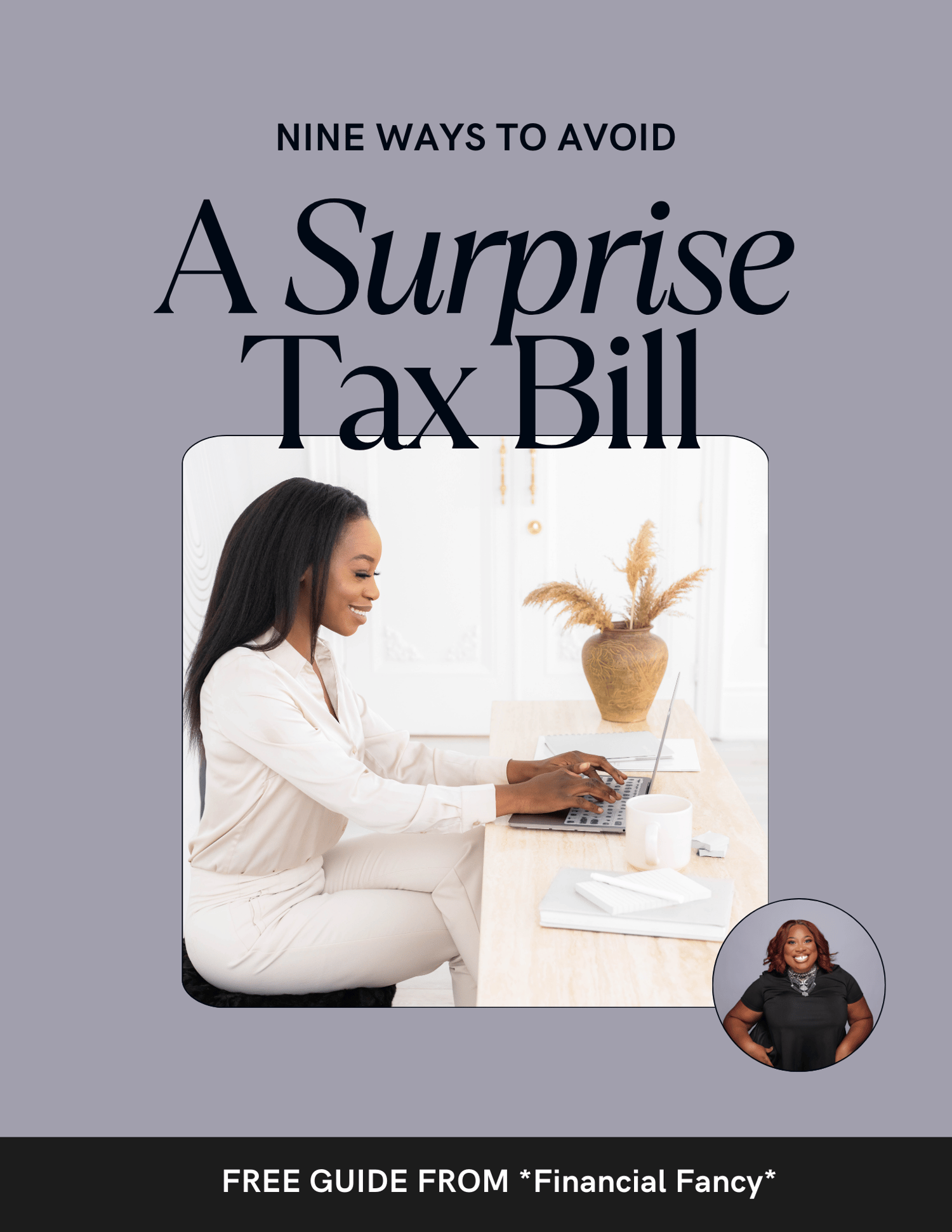Welcome! I’m Charese, the owner of Financial Fancy, and I’m thrilled you’ve chosen to explore my guide “Nine Ways to Avoid A Surprise Tax Bill”. Please remember that while not all tips in this guide may be applicable to you, they are valuable pointers to keep in mind for various scenarios. Always consult your tax accountant to determine the best actions for your unique tax situation.
Adjust Your Withholdings for Career and Life Changes
If you work a W-2 job, your employer withholds a certain amount of money from your paycheck based on your Form W-4: Employee’s Withholding Certificate. Life and career changes, such as getting married, gaining a new dependent, or getting a second job, are all events that could affect your tax situation. So, it's essential to adjust your withholdings accordingly.
Set Aside Money for Taxes from Gains on Asset Sales
When you sell assets like stocks, cryptocurrency, or real estate, it's crucial to set aside a portion of your profits for taxes on any gains. Always check with your tax accountant to see whether you qualify for a capital gains exclusion on the sale of your home!
Strategically Structure Your Business
Choosing the correct entity choice for your business can help you avoid double taxation and/or save on self-employment taxes. Your entity choice can also offer liability protection. Review your business structure with your accountant to ensure it’s working in your best interests.
Save for Estimated Taxes and Monitor Your Income
If you're self-employed or required to pay estimated taxes, you should set aside money each month for this purpose. If your income starts to become significantly higher than you anticipated, paying more in estimated taxes can lower your tax bill due in April!
Maximize Your Contributions to Tax-Advantaged Accounts
You can lower your tax liability by contributing to tax-advantaged savings accounts like a traditional IRA, 401(k), Health Savings Account, or Flexible Spending Account. Ask your tax accountant whether you are eligible to contribute to these accounts and if there are any limits on your contributions.
Understand Your New Home State’s Income Tax Rates
If you're moving or working in a different state, it's important to be aware of whether your new state has a higher or lower income tax rate than where you currently live/work. Keep track of the dates you resided/worked in each state to give to your tax accountant at the end of the year.
Document All Deductions or Credits
Whether it’s qualifying tuition expenses, child care expenses, or charitable contributions, it's a good practice to keep track of all documentation for a tax credit or deduction. A tax credit is a dollar-for-dollar reduction in your tax liability, and a deduction reduces your taxable income.
Track Your Business Expenses
If you own a business, keep track of all your business expenses. Qualified expenses will offset your total income and lower your taxable income. Remember, your expenses need to be both ordinary and necessary for your trade or business. Working with a bookkeeper can help make sure you don’t miss out on any deductible expenses.
Stay Up-to-Date on Tax Laws with a Tax Professional
One of the easiest ways to get hit with a surprise tax bill in April is to miss out on news of a tax law change. The tax code is incredibly long and complex. You want someone on your side who understands the nuances of it all!
In conclusion, tax planning is an ongoing process that involves strategic actions throughout the year, not just during the tax season. Let's work together to avoid any surprise tax bills. Feel free to contact me at CHARESE@FINANCIALFANCY.COM or call (804)491-8184. Visit our website www.financialfancycfo.com for more information.


Comments ()